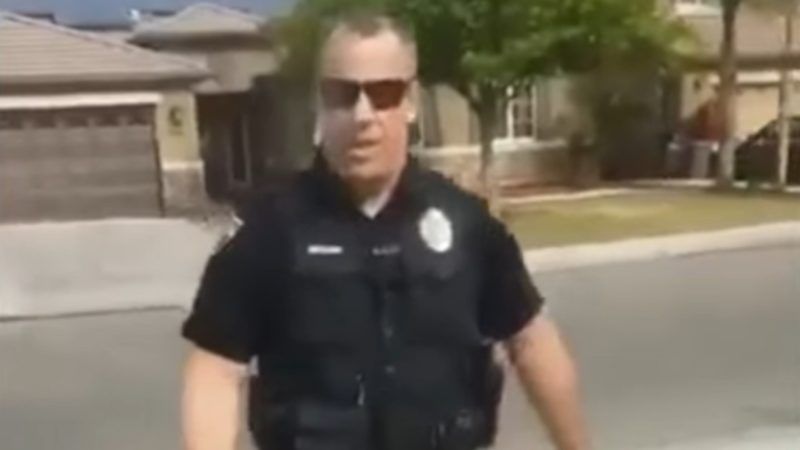California Cops Arrested Teens Who Recorded Use of Force—Now They're Getting Paid
The department will update its training to remind officers that citizens should not be arrested for exercising their First Amendment rights.

Four California high schoolers will be paid settlements because the Delano Police Department (DPD) used excessive force on them while they were walking to school.
The incident occurred on April 11, 2019. It began when Pablo Simental, Edwin Ardon, Isaac Ruiz, and Isai Ruiz were walking through a residential neighborhood toward Wonderful College Prep Academy. The group was on its way to obtain prom tickets.
DPD officers Ruben Ozuna, Michael Strand, and Guadalupe Contreras allegedly veered toward the group with a patrol vehicle, questioned them, and arrested them for jaywalking. When the teens pulled out their cellphones to record the interaction, the officers attempted to take the phones by force.
Simental was jailed with his hands handcuffed behind his back for hours, yet he was never charged with a crime. Neither of the Ruizes was charged either. Ardon faced a single charge of jaywalking. The DPD acknowledged the use of force but cleared its officers of misconduct, maintaining that the boys refused to listen to orders to exit the roadway.
On Friday, the American Civil Liberties Union (ACLU), which filed a lawsuit on Simental's behalf, announced that the city of Delano had approved a settlement with the teens.
A copy of the settlement requests that each teen receive between $30,000 and $35,000. And the city and police department will write a letter to the Kern County district attorney and Kern County Superior Court to dismiss Ardon's jaywalking charge.
"Upon further review of this case, the DPD has determined that further prosecution of Mr. Ardon is not in the interest of justice in light of the circumstances of Mr. Ardon's arrest and the nature of the charges filed against him," the settlement reads.
The settlement also requires the DPD to update its training to prevent further arrests of citizens for exercising their First Amendment right to record police interactions.


Show Comments (42)